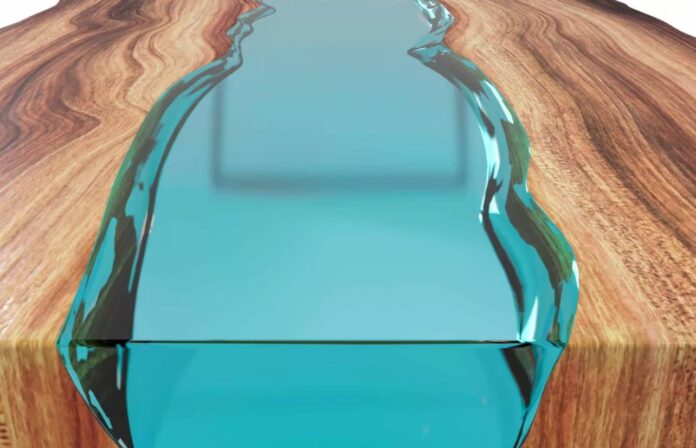Epoxy resin is an adhesive used for bonding, sealing, and waterproofing. It’s a necessity in many industries, including construction, marine, transportation, and aerospace. But does this make it safe?
Epoxy resin safety is important to consider; through exposure to epoxy resins or products containing epoxy resins, we can be exposed to numerous hazardous substances.
While there are some safeguards in place to protect workers and the public, mistakes can still be made at any point in the manufacturing process, including at sea and on land.
Following are some frequently asked questions about the safety of epoxy resins.

What Is Epoxy Resin?
Epoxy resins such as these here are manufactured by combining two types of compounds: an epoxide and a polyol. Epoxide is the active ingredient. It is what creates a permanent bond between two materials.
Epoxies were used for thousands of years before we had a clue that they could be harmful. Some of the first examples were created by the Ancient Greeks and Romans, where they would mix wine with resin to make it less acidic. They thought that this would help to improve the texture of foods, but we now know that there are indeed adverse health effects from drinking alcohol while consuming food items covered in epoxy resin.
Today, epoxy resin are used as an adhesive in the manufacturing of various items such as auto parts, electronics, artificial limbs and joints, paint, roofing tiles, boats, and fiberglass. They’re also used for non-structural elements in aircraft including frames on windows.
The huge benefit of epoxy is that it can adhere to a wide range of surfaces and is resistant to water damage. The marine industry finds it ideal. Epoxies are also safe to handle, and they have a scent that disappears almost immediately after application.
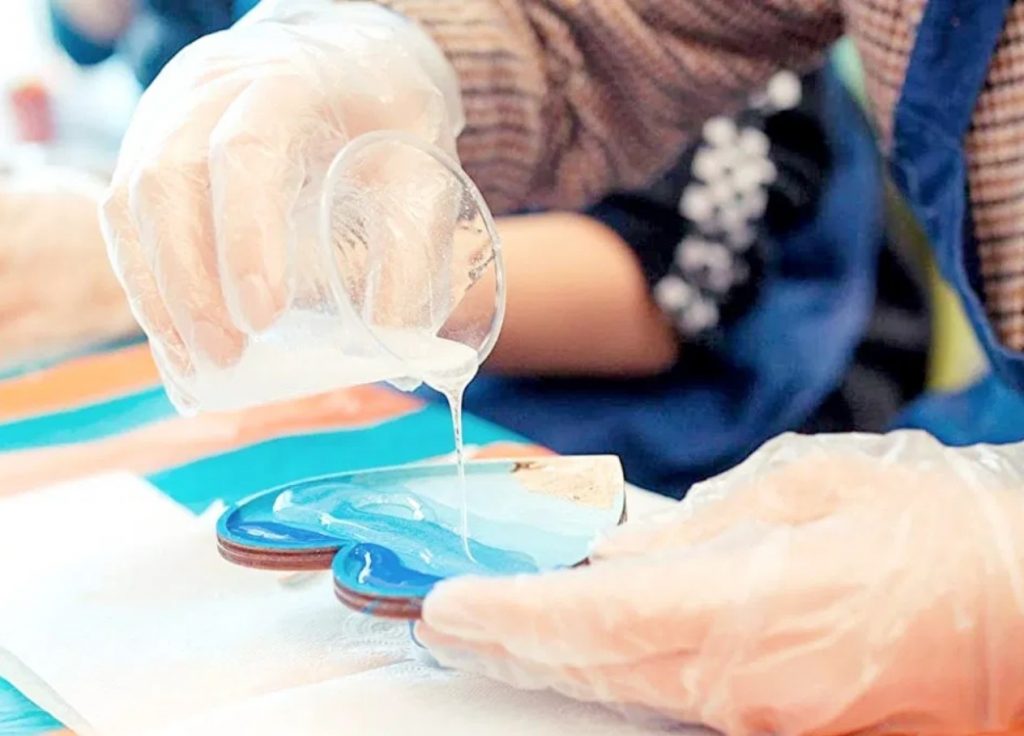
Are Epoxies Carcinogenic?
Epoxies are not known to produce cancer. While they work well with epoxy resins, they must be handled carefully as excessive consumption or inhalation could be detrimental to your health.
Is Epoxy Resin Safe To Ingest?
Yes, epoxy resins are safe to eat. Epoxies are a food additive for the manufacture of packaged foods and beverages and are registered with the FDA as a non-carcinogenic food additive.
If you’re exposed to epoxy resins by eating certain foods, or if you breathe in high concentrations of epoxy resin dust, then it’s possible that something could be absorbed into your system via your skin.
When epoxy resins are in powder form (dry), the likelihood of someone accidentally swallowing it is low. When epoxy resins are exposed water, though, the risk of exposure increases. Eating food items that have been coated in epoxy resin is another way that people can be exposed to harmful toxins and chemicals if the coating on the food item has not completely hardened.
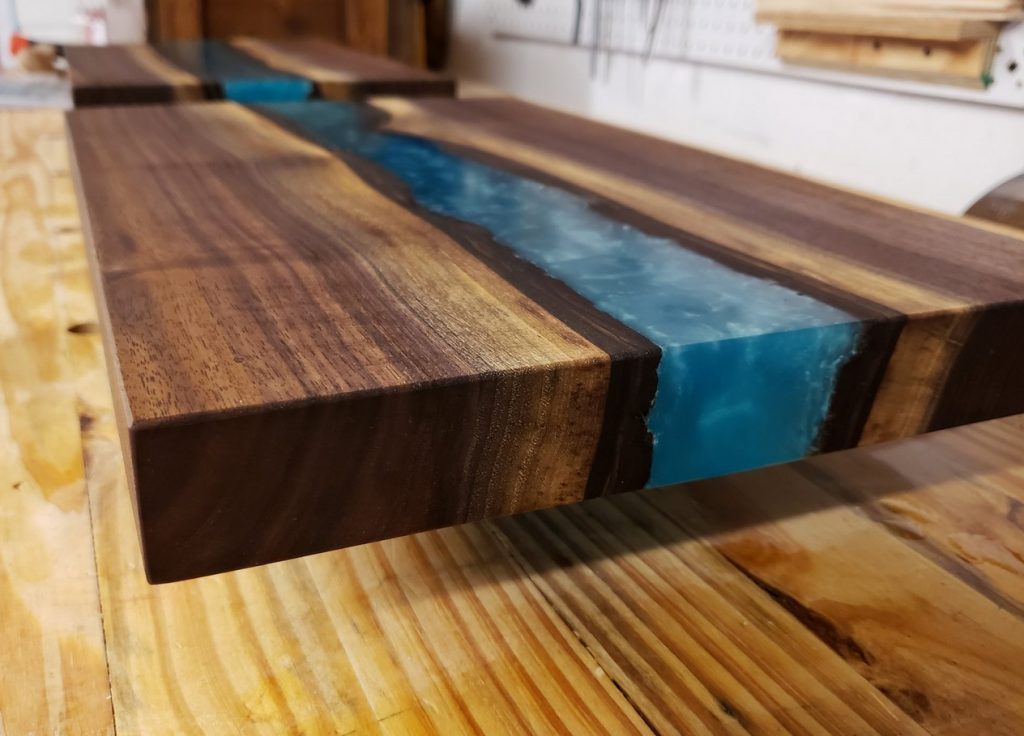
What are some common chemicals found in epoxy resins?
There are numerous chemicals used during manufacturing and during application. From a health standpoint, the most hazardous chemical found in epoxy resins is styrene. Other chemicals found in epoxy resins that you should be concerned with include:
- Toluene – Toluene is an aromatic hydrocarbon that has high levels of toxicity. It’s found in paint, varnishes, and lacquers. It’s also present in gasoline and crude oil.
- Ethylbenzene – Ethylbenzene is a liquid that has been linked to the risk of developing leukemia, esophageal cancer, and bladder cancer.
- Phenol – a primary ingredient of rubber making compounds and used as wood conditioner for construction projects. Paints and varnishes also contain acetone as a solvent. It can cause eye irritation, asthma-like symptoms, and damage to the liver, kidneys, and central nervous system.
- Methyl phenol – can cause irritation to the eyes, skin, and mucous membranes. It is also highly flammable and toxic.
- Methyl methacrylate – can cause irritation to the skin, eyes, mucous membranes, respiratory system, and non-reproductive organs.
- Styrene – can cause respiratory tract irritations when inhaled in high concentrations as well as damage to the nervous system, liver, kidneys, bones, and central nervous system.
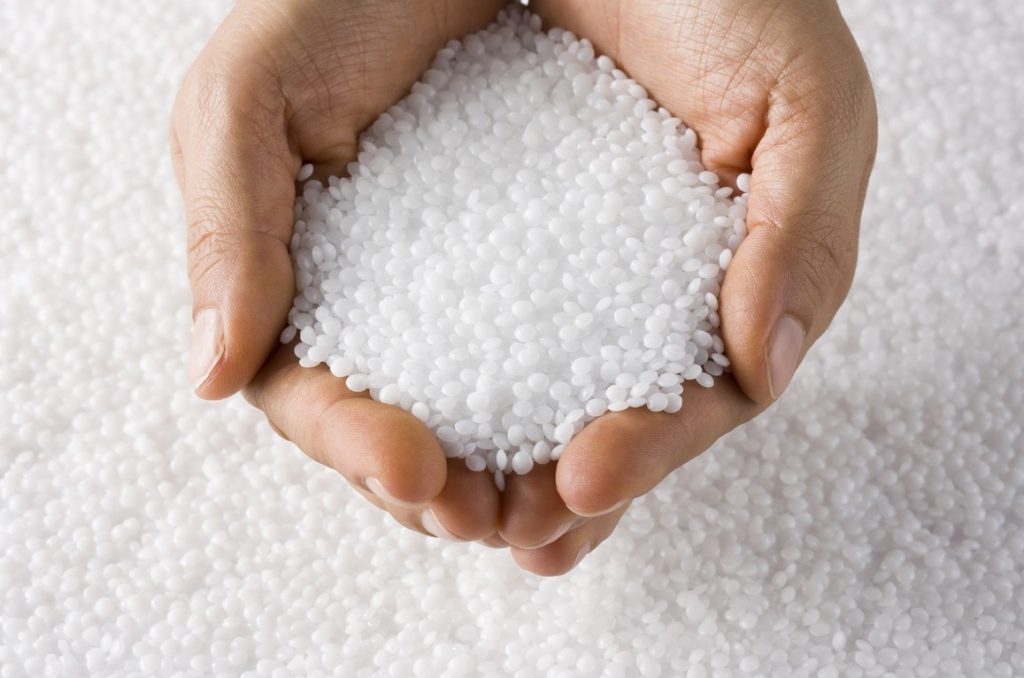
What Is Styrene?
Styrene is a chemical that’s used to make plastics, clothes, and epoxy resin. It was first discovered in 1839, and now it’s widely used in the construction industry. It’s also found in cements, paints, fiberboards, glues, and coatings for floors and countertops. It’s estimated that styrene is used in the manufacturing of 60 billion pounds of products per year worldwide.
Styrene is an irritant to the skin, eyes, and mucous membranes. It can also be harmful to the respiratory system. Studies have shown that styrene can cause damage to white blood cells and nervous systems. Inhaling high concentrations of styrene can cause fluid accumulation in the lungs and damage to the brain.

Is Epoxy Resin Safe For Use On Children’s Toys?
Not all epoxy resins are safe for children’s toys. There are three grades of epoxy resins:
- General Purpose: safe for retail toys and arts and crafts.
- Medium-Duty General Purpose: not recommended for use on children’s toys.
- Heavy Duty – safe for retail toys is not rated as suitable for long-term exposure to high temperatures.
Toys can be coated with epoxy resin that was tested and approved by the Consumer Product Safety Commission (CPSC). You can check the label for a rating of one of the following:
- Safe for use on toys
- Not recommended for use with toys, but safe if used as directed
- Not rated by the CPSC and not tested for use with children’s products.
Keep in mind that not all epoxy resins are considered to be safe for use on children’s toys. Always choose epoxies that have been developed with children’s safety in mind.

Is Epoxy Resin Safe To Use For All Types Of Objects?
It’s common for people to ask, “Will epoxy resin ruin dishes?” The answer is yes. It’s important to protect kitchen items like your plates and bowls. By following the instructions for using epoxy resins properly, you’ll be able to make your home or office look great without worrying about causing damage to your decorations.
If you want a professional paint job on any of your home or office products, then you should consider hiring a professional painter. There’s no reason to take on a DIY project when hiring professionals can get the job done faster and more efficiently.
Those wishing to use epoxy resins for DIY projects should make sure that the product they choose is safe for use on children’s toys. By reviewing the labels and testing kits, you’ll be able to find a product that will work for your needs.
Wear dust masks and rubber gloves when using epoxy resins. Be sure to keep spray cans away from open flames. Use plastic or metal containers to mix epoxy resins. These products can cause serious damage to materials like wood, tile, and granite.
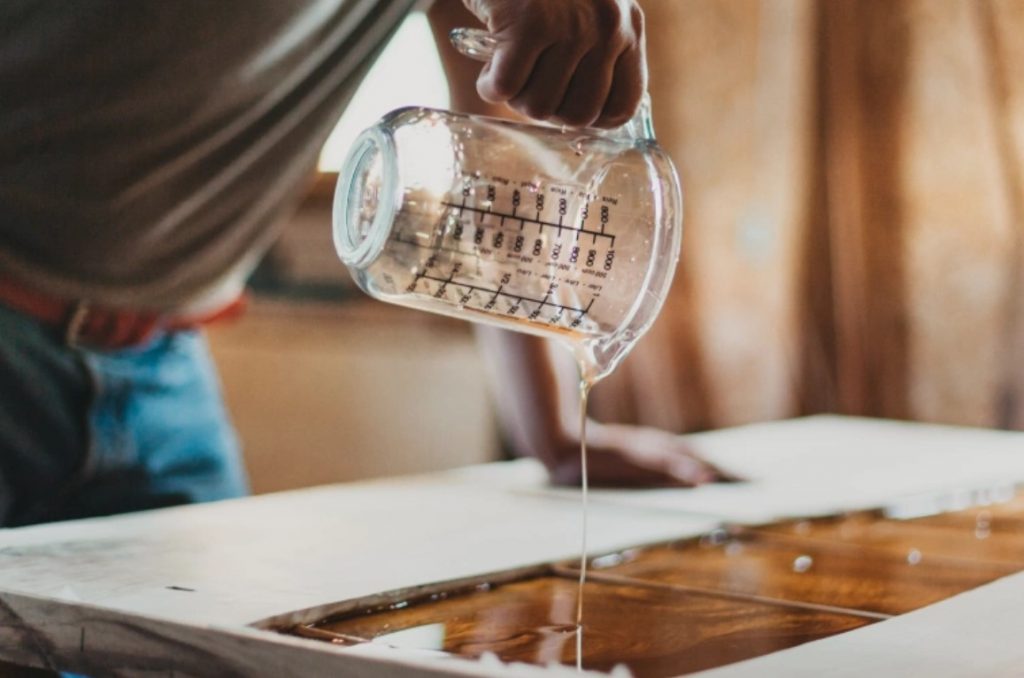
Is Epoxy Resin Safe For You?
Epoxy resins are dangerous products. People who are exposed to these products on a regular basis – either at work or at home – could be at risk of serious health problems. Always follow the directions on the package for using epoxy resins properly. Wear proper safety equipment and keep a first aid kit handy in case of accidental poisoning from exposure to these dangerous products.
You may wish to use epoxy resins in DIY projects if you’re moving into a new home or building a new office. Follow the instructions on the label to protect your health and your home.
When using epoxy resins, always make sure that they are safe for children’s toys and other household items. If you’re not sure if it is safe, ask an expert before using these products around kids.

